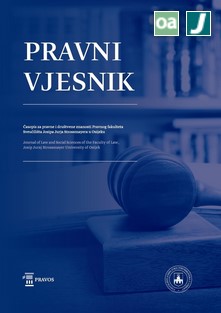USPJEŠNOST PROGRAMA EUROPSKE UNIJE U POTICANJU I FINANCIRANJU KULTURNOG I KREATIVNOG SEKTORA U REPUBLICI HRVATSKOJ
EFFICIENCY OF THE EUROPEAN UNION PROGRAMME IN FOSTERING AND FINANCING THE CULTURAL AND CREATIVE SECTORS IN THE REPUBLIC OF CROATIA
Author(s): Ivana Bestvina Bukvić, Kristina Bjelić, Marija ŠainSubject(s): National Economy, International relations/trade, Comparative politics, Sociology of Culture, Transformation Period (1990 - 2010), Present Times (2010 - today), EU-Approach / EU-Accession / EU-Development
Published by: Pravni fakultet Sveučilišta Josipa Jurja Strossmayera u Osijeku
Keywords: cultural and creative sectors; financing; European Union strategies and recommendations; Creative Europe Programme;
Summary/Abstract: The cultural and creative sectors are highly ranked by the number of employees at the European Union (EU) level and they represent an economic force that proved its resilience to economic changes due to rapid and easy adaptations to market and innovation trends. In order to achieve the objectives of the Europe 2020 Strategy, in 2013 the Regulation (EU) No 1295/2013 was passed by the European Parliament and the Council to establish the Creative Europe Programme (2014–2020) for support to cultural and creative sectors. However, it was found that the Republic of Croatia lacked systematic monitoring of the cultural and creative sectors (including the IT sector) as they are not sufficiently and well positioned in national policies and strategies. The research has been conducted into the level of success of the EU and its regulatory framework in stimulating cultural and creative sectors in developing countries. The paper analyzes the extent to which the Republic of Croatia adopted and applied the opportunities offered by the European Union programmes in financing the projects in cultural and creative sectors based on the results of the Creative Europe Programme, the Culture Sub-programme. The authors conducted the comparative analysis into the official programme results achieved in the Republic of Croatia, Slovenia and other EU member states. The research results show the position of the Republic of Croatia in relation to other countries, the influence of EU membership length and the level of innovation on the total number of positive applications evaluations in this field.
- Issue Year: 36/2020
- Issue No: 3-4
- Page Range: 201-227
- Page Count: 27
- Language: Croatian

